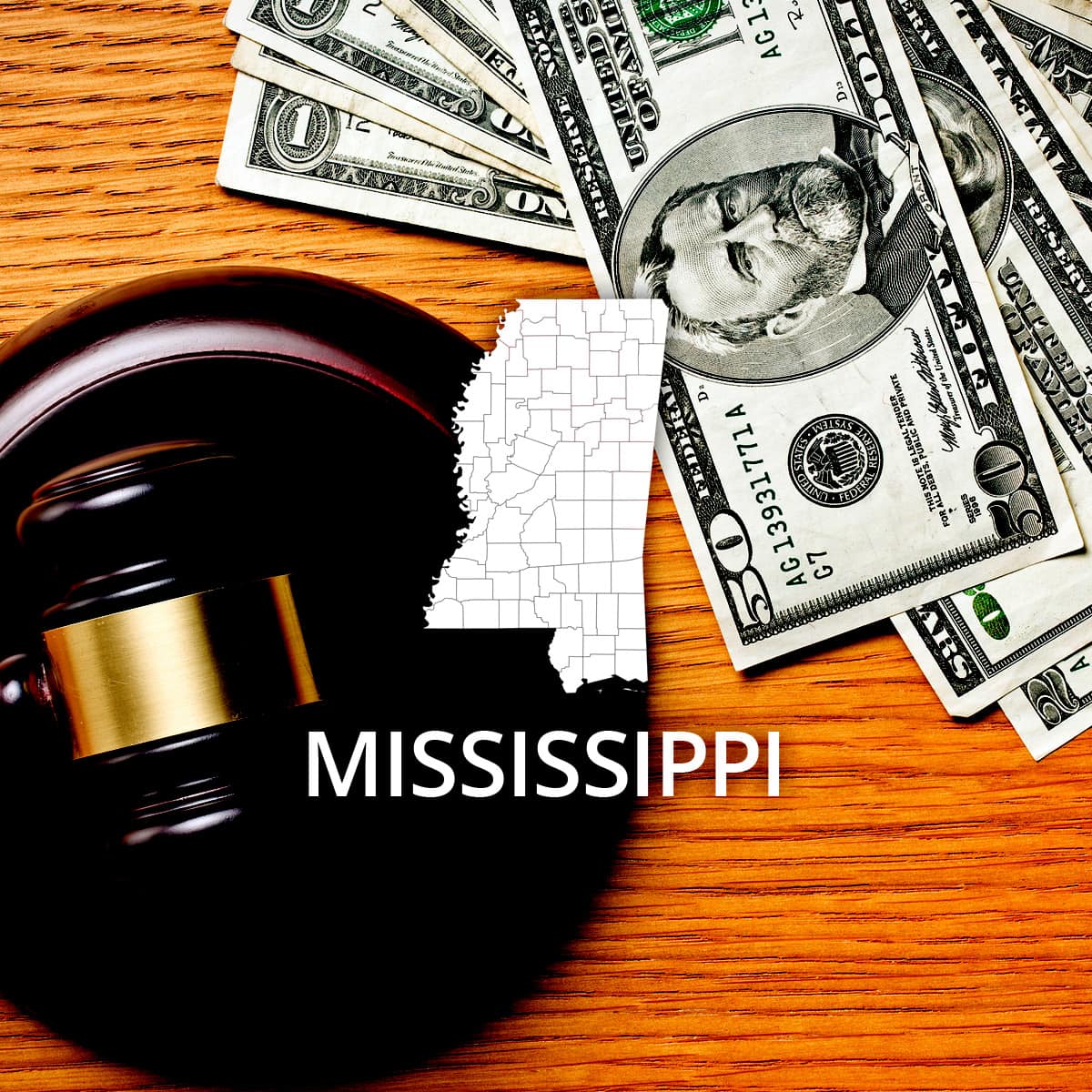How to File Bankruptcy in Mississippi
 According to the 2005 Bankruptcy Act, all District Courts must adhere to federal standards for
bankruptcy. There is a Southern and Northern Mississippi Bankruptcy Court District with 10 court
locations between the two. The most commonly filed types of bankruptcy are Chapter 7, Chapter 11,
Chapter 12 and Chapter 13.
According to the 2005 Bankruptcy Act, all District Courts must adhere to federal standards for
bankruptcy. There is a Southern and Northern Mississippi Bankruptcy Court District with 10 court
locations between the two. The most commonly filed types of bankruptcy are Chapter 7, Chapter 11,
Chapter 12 and Chapter 13.
Types of Bankruptcy and Terms
Chapter 7 bankruptcy is filed for to eliminate as much debt as possible. Unsecured debt such as credit card balances and medical bills can be wiped clean from financial records. The cost for elimination of the unsecured debt is liquidation of assets and property. Any non-exempt possessions can be used by the court to settle debt. Non-dischargeable debt, like child support and taxes, remain the responsibility of the petitioner.
An attractive alternative to some petitioners is Chapter 13. This type of bankruptcy offers debt relief, but will not require the filer to part with as many of their possessions. There are many that file for Chapter 13 and keep their cars and homes if they continue to make the court assigned payments as detailed in their 3 to 5 year repayment plan.
Chapter 11 is for businesses to file for bankruptcy and keep the option of staying in operation. The heavy debt load is condensed into a manageable amount to be repaid in 3 to 5 years while protecting the business's assets. A similar type of bankruptcy, Chapter 12, is specifically for family farmers and fishermen.
Official bankruptcy forms for the U.S. Bankruptcy Courts are available at http://www.uscourts.gov/forms/bankruptcy-forms or RecordsFinder.com Court Forms Section.
Steps to Filing Bankruptcy
All petitioners of bankruptcy are required to receive credit counseling up to 6 months before filing. This allows individuals to know their options and be well informed about bankruptcy terms. If the petitioner decides that bankruptcy is the right course of action, several steps will follow.
The first step is to determine for which type of bankruptcy a petitioner is eligible. This is done by way of a Means Test. The Means Test is a comparison of the petitioner's last 6 months of income and the income of the rest of wage earners in Mississippi. If the person filing for bankruptcy has earned less than the median, he or she is eligible to file for Chapter 7 or Chapter 13. An individual with a higher income is only allowed to file for Chapter 13.
Paperwork must also be gathered at the beginning of the bankruptcy process to submit to the court for review. This includes, but is not limited to: tax returns from the previous 2 years, a record of any major recent financial transactions, loan documents, a list of all debts, an inventory of possessions, property deeds, vehicle titles, and monthly expenses. A petitioner of Chapter 13 must also outline a debt repayment summary for court approval.
This paperwork, along with the debt repayment summary, and all necessary forms are referred to as "the schedule." Some people choose to have legal counsel when filing for bankruptcy, while others choose to file on their own. The cost to file for Chapter 7 is $306, although this is sometimes waived. Chapter 13's fee is $281 and cannot be waived.
After the schedule has been received and fees paid, the court issues an automatic stay. This prevents creditors from contacting the debtor and halts any foreclosure proceedings. The case is then reviewed by a court appointed trustee who uses the non-exempt possessions to pay outstanding balances. The trustee will also arrange a meeting for the creditors and debtor to negotiate terms. If no agreement can be made, a judge will intervene.
Lastly, a petitioner of bankruptcy is required to complete a financial management course to complete their process. If the individual has filed for Chapter 13, he or she will need to continue making payments as indicated by the debt repayment summary to avoid going back to court.
Location Specific Information
Mississippi is divided into two districts, the Northern District and Southern District. Court locations for the Northern District are found in the following cities: Aberdeen, Greenville, and Oxford. The Southern District has offices situated in Biloxi, Gulfport, Hattiesburg, Jackson, Meriden, Natchez, and Vicksburg.
